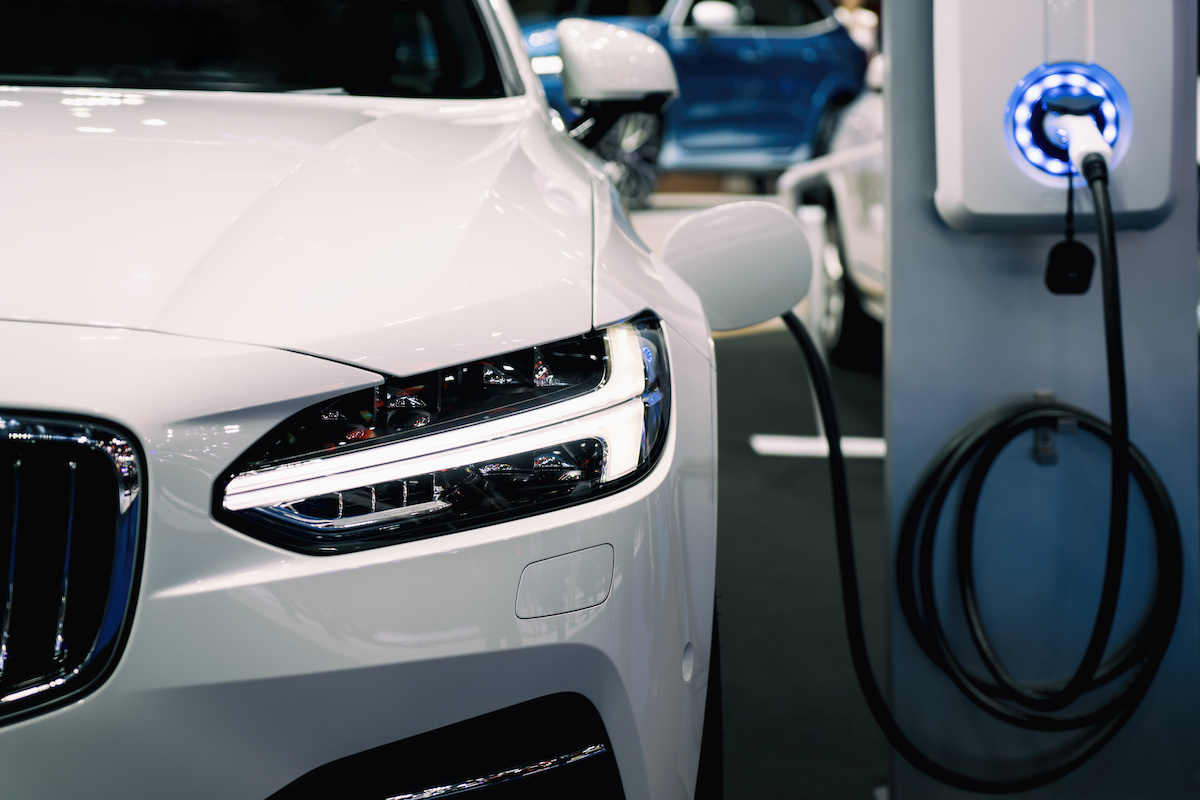
Electric cars are reshaping transportation around the world, offering substantial benefits not just for the environment but also for our pocketbooks. With over 100,00 electric cars registered in Washington state as of July 2023, there are plenty of practical advantages of electric cars. But what exactly are those benefits, and what is the explanation of the process of setting up a charging system at home? As your go-to EV charger installer, Dadz will show you how to experience the best of electric cars!
Electric Cars and their Popular Environmental Benefits
Perhaps the most notable benefit of electric cars is their environmental benefits. For example, electric cars produce up to 68% fewer greenhouse gasses than gas-powered cars. But what other benefits of electric cars are there to enjoy?
Combating Air Pollution
One of the most immediate environmental benefits of electric cars is their role in combating air pollution. Traditional vehicles emit a significant amount of pollutants, including:
- Particulate matter
- Hydrocarbons
- Nitrogen oxides
- Carbon monoxide
Each of these pollutants are harmful to human health and the environment. Electric cars, on the other hand, produce no tailpipe emissions. This drastically reduces the release of these pollutants into the air.
Meanwhile, this shift is especially impactful in urban areas, where traffic congestion is high and air quality often suffers as a result.
Reducing Carbon Footprint
Electric cars play a crucial role in reducing the carbon footprint of the transportation sector. Since they run on electricity, they don’t burn fossil fuels and.
Furthermore, electric cars don’t directly emit carbon dioxide (CO2)–a major contributor to global warming. Even when considering the emissions from electricity production, electric vehicles typically have a smaller carbon footprint than conventional cars.
This benefit amplifies as the grid incorporates more renewable and low-carbon sources of electricity.
Conserving Non-Renewable Resources
Traditional cars rely heavily on oil, a non-renewable resource, for fuel. The extraction, transport, and refining of oil all pose significant environmental risks. This includes habitat destruction and oil spills.
Electricity for electric cars can be generated from various sources, including renewable ones like wind and solar. This diversity in potential energy sources means a broader, more sustainable basis for fuel, reducing our reliance on non-renewable resources and mitigating the environmental risks associated with oil.
Promoting Sustainable Energy Practices
Aside from the environmental benefits of electric cars, another great point is promoting sustainable energy practices.
Electric vehicles dovetail with broader shifts toward sustainable energy. Many electric vehicle owners opt for green energy tariffs or install home renewable energy systems like solar panels, effectively powering their vehicles with zero or reduced-emission electricity. All of these options come full circle for a more sustainable lifestyle.
Meanwhile, the increasing prevalence of electric cars is spurring enhancements in renewable electricity generation, storage technology, and the smart grid. These all contribute to a more sustainable energy landscape.
Improving Noise Pollution and Urban Living
Environmental quality isn’t just about air and land — it’s also about sound. Electric cars contribute far less to noise pollution than their combustion engine counterparts.
The significant reduction in traffic noise can greatly improve the quality of life in urban settings, contributing to quieter cities, reducing stress levels among residents, and even potentially benefiting local wildlife. This lesser-discussed advantage is a key component of the environmental benefits offered by electric vehicles.
Enjoy Better Economic Efficiency
Cost-efficiency is a prominent advantage of electric cars. They run on electricity, which is less expensive than gasoline, and they demand less maintenance due to their simpler mechanical structure.
This efficiency provides a financial cushion against the unpredictable nature of fuel prices and reduces long-term operating costs.
Possible Government Incentives
Many governments encourage the purchase of electric vehicles through financial incentives. These can take the form of tax rebates, reductions in registration fees, and various other fiscal measures designed to reduce the initial purchase cost. Electric vehicle owners often enjoy auxiliary benefits like special road lane access and lower toll fees.
Home Charging Systems
Home charging is a convenient and efficient method for powering an electric car. Although these vehicles can be charged from standard outlets, installing a Level 2 charger at home expedites the process significantly.
These chargers replenish the car’s battery faster, often during night hours when electricity rates are lower. You can typically charge your car battery from empty to 80% in about 4 hours. Some homeowners opt to power their chargers with solar energy, cutting emissions and electricity costs further.

How to Choose an EV Charger for Your Home
Selecting the right electric vehicle (EV) charger for your home affects the efficiency of your charging process but also the overall convenience of owning an electric car. When you aren’t sure how to select the right EV charger for your home, consider the following.
Vehicle Compatibility
First and foremost, the charger you are considering must be fully compatible with your specific electric vehicle model. Different EVs may have varying charging requirements and connectors.
Meanwhile, some chargers are designed to be universally compatible, while others may be tailored to specific brands or models. Check your vehicle’s manual or consult with the manufacturer to understand its charging specifications and requirements.
Charging Speed
The charging speed of a home EV charger is a very important consideration. For example, ;evel 1 chargers use a standard 120-volt outlet and offer a slower charging speed, usually adding about 2 to 5 miles of range per hour.
Level 2 chargers, on the other hand, operate on a 240-volt supply (similar to a clothes dryer) and can add around 10 to 60 miles of range per hour. This also depends on the specific model and vehicle.
Smart Features
Many modern home EV chargers come equipped with smart features that enhance the charging experience. Look for models that offer connectivity via Wi-Fi or Bluetooth, allowing you to monitor and control the charging process through a smartphone app.
This connectivity can enable features such as remote start/stop, charging status notifications, and the ability to schedule charging sessions during off-peak hours to take advantage of lower electricity rates.
Some chargers also integrate with home energy management systems, helping optimize overall household energy use.
Ease of Installation and Maintenance
Consider the ease of installation and maintenance when choosing a home EV charger. While Level 1 chargers can be plugged into a standard outlet, Level 2 chargers typically require professional installation. This can include potential upgrades to your home’s electrical system.
You’ll also want to consider installation costs when budgeting for your home charger. Look at the warranty and customer support services offered by the manufacturer to ensure you have adequate support throughout the charger’s lifespan.
Budget and Future-Proofing
Lastly, consider your budget and the future-proofing aspects of your purchase. Higher-powered chargers and models with advanced smart features tend to be more expensive but can offer greater convenience.
Get EV Charger Installation from Dadz Electric
In business since 1993, we are happy to serve you with EV charger installation. If you are ready to enjoy your electrical vehicle to its full capacity, please contact us for assistance.